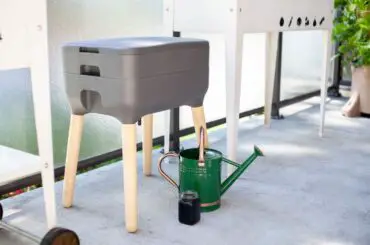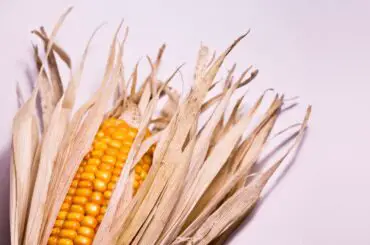If you live in a village and are struggling with a rat problem, you are not alone. These annoying pests have a habit of getting into whatever crevice they can, including compost bins. However, you may take precautions to rat proof compost bin and deter these pesky rodents. You can read this article to find out how I successfully protected my compost from obnoxious intruders by rat-proofing my compost container. You can have a compost bin free of rats if you follow these suggestions.
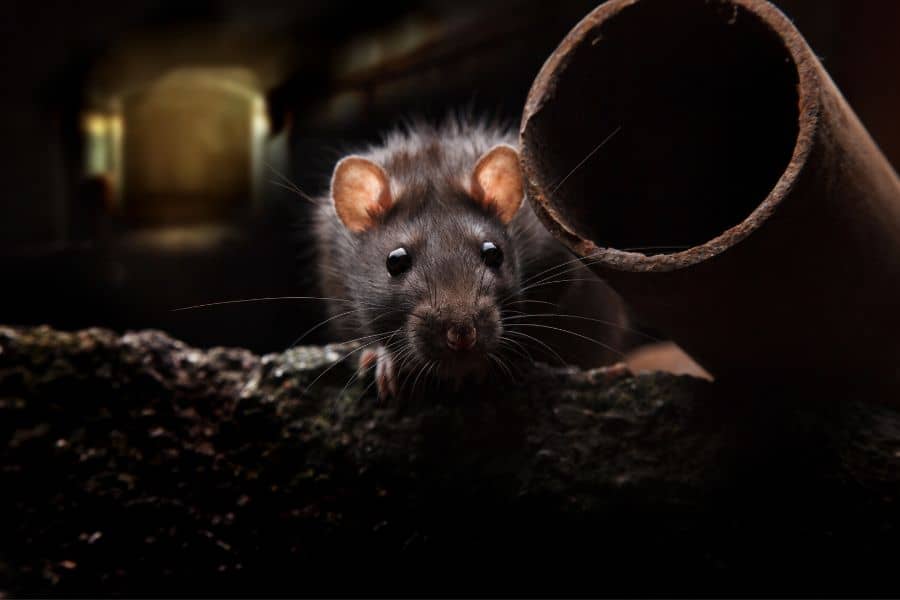
Quick answer: Putting vermin netting on the bottom of it is an efficient approach to keeping them out. Rodent mesh makes it impossible for baby rats to pass through. It rusts after about 5 years, but it's still an efficient way to compost food waste without simultaneously luring all the rats in your neighborhood inside.
How do I keep rats out of my compost bin?
Contents
Compost Management
Pests can be repelled and the composting process sped up with good compost management. You can deter unwelcome guests by being careful with what you put in your compost bin and how you handle it. Avoid adding any meat, poultry, fish, oils, cheese, or leftovers that are too seasoned or oiled. Eggshells can be particularly attractive to certain people while being harmless to others.
If a problem persists, it may be necessary to completely forgo using food waste. For food waste, you might want to think about indoor vermicomposting. Do not add cat litter or other carnivore waste to your compost pile. By heeding those recommendations, you will also lessen the chance of introducing parasites that may be found in the excrement.
Avoiding exposed food waste may also be beneficial. You should not use the “dump and run” method. You should carefully add the waste in a certain order.
- Prior to adding the proper food scraps, fill the bin’s inner wall with yard debris.
- Food scraps should be placed in the center of the pile
- layering materials like grass, leaves, wood chips, soil, or sawdust should be placed on top of them.
Increase the temperature of your pile and keep it wet to encourage decomposition. Additionally, it will deter animals from searching for a dry, undisturbed home. When turning the compost, keep an eye out for food that may become exposed. Keep a close eye on the bin’s vents and any open spaces. Your best line of defense against problems like attracting unwanted flies and other pests and controlling leachate is good “Binkeeping,” which includes covering all food wastes.
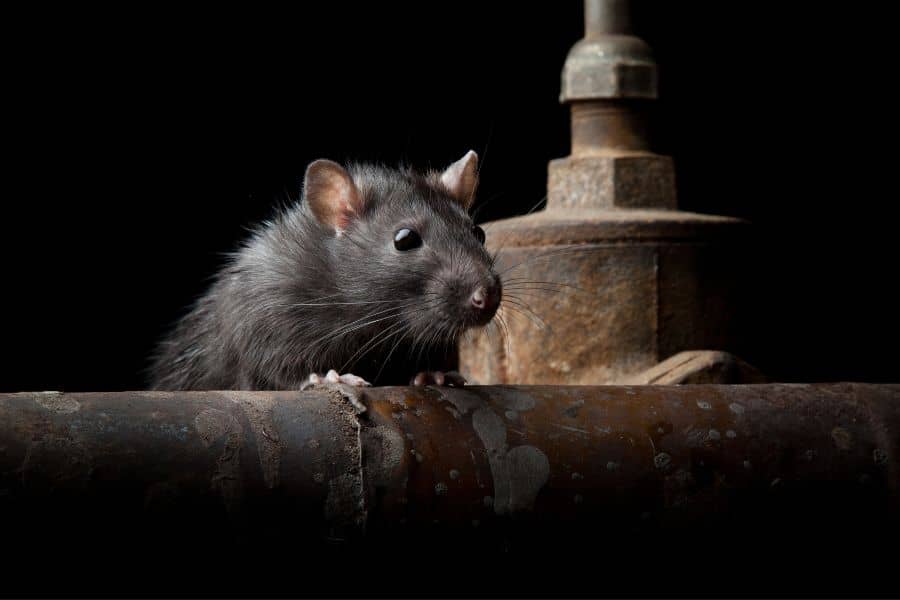
Bin location
Frequently, animals are drawn to surrounding compost bins by other food sources like bird feeders, outdoor pet bowls, trash cans, fruit trees, or berry bushes, and they use them as comfortable beds. Or they could be sleeping in your garage, woodpile, or shed during the day and eating your compost at night. Eliminate current attractants if you can. Place your compost container far from other potential nesting sites or food sources.
Rat proof compost bin
Rats may eat through plastic containers, usually beginning at the vents. They might stop if you take steps to keep them out of your trash. Your bin’s design will determine how to do this. Here are several options for you
• Build your container out of welded wire or hardware cloth that is half an inch thick.
• Cover the entire container in wire mesh measuring 1/4″ to 1/2″ thick. It might be required to cover the vents on your compost bin with wire mesh if it has vents.
• Use wire mesh to line your trash can. It might be required to cover the vents on your compost bin with wire mesh if it has vents.
• It’s crucial to have a tight-fitting, secure lid.
• Placing and fixing your bin on top of a wooden pallet after covering it with 1/4″ to 1/2″ wire mesh
• Digging a hole beneath your bin, then filling it with three to four inches of coarse gravel and 1/4″ to 1/2″ galvanized hardware cloth.
You can also take the following measures to prevent rats from accessing your compost bin:
- Use a tight-fitting lid: To keep rats out of your compost bin, make sure the top is tight-fitting. Check your lid for any cracks or gaps and cover them up because a rat can fit through a quarter-sized hole.
- Rats are drawn to dusty, dry surroundings, so keeping your compost moist can help keep them away. You can hasten the decomposition process by adding water to your compost container or pile.
- Avoid adding certain goods: In order to keep rats away from your compost bin, there are some items you should not add. These include dairy products, lipids, meat, and bones.
- Maintain cleanliness surrounding the bin: Routinely clearing away any trash or food leftovers from the area around your compost bin can help deter rats from congregating there.
- Utilize a rat-proof compost container: Rat-proof compost containers are readily accessible. To keep rats out, these containers frequently have secure lids and solid construction.
- You can lessen the likelihood that rats will enter your compost bin and cause issues by taking the actions listed below.
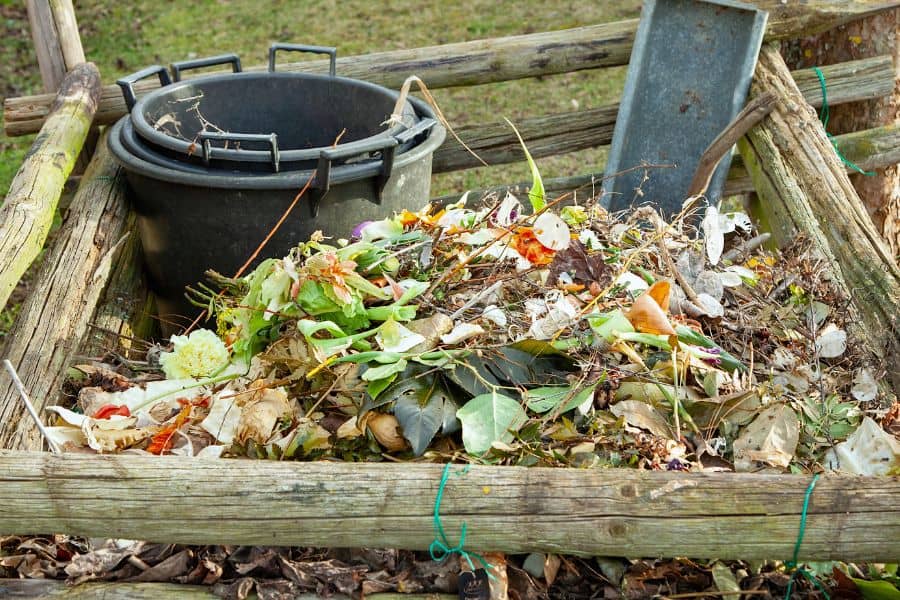
Will rats live in a compost bin?
Concerns about house pets, racoons, and rodents can arise while composting in the backyard. Compost piles can draw them in by offering a place to reside and a source of food.
Rats were listed as the third most common composting difficulty in a central New York research study, behind lack of room and ignorance.
Mice and rats find winter to be an especially appealing season to settle in a compost pile. Mice and rats may be less likely to make the compost their permanent home during the summer, when it is churned frequently and maintained moist for the best decomposition, and may instead visit the heap only in search of food scraps or other edible stuff.
Can rats get into compost tumblers?
No, rats and other pests cannot enter a compost tumbler since it is a closed system. Since the compost is totally contained inside the chambers of the bin, a compost tumbler is neater.
Can you use compost that has had rats in it?
Yes. Composting is often trouble-free, even if rats have infected the container. The amount of bacteria in the soil will be so low after the compost has been applied and blended with it that vegetables grown there can be cooked and eaten normally.
What attracts rats to your compost?
Compost lures rats because they provide a steady supply of food. Rats may be attracted to the variety of organic products found in compost piles, including fruits, vegetables, and grains. Rats may also be drawn to a compost pile because of its warmth and moisture, especially during the colder months. Last but not least, rats may find shelter in compost piles, particularly if they are huge or poorly maintained. Maintaining your compost pile and storing it in a safe container are essential if you want to avoid attracting rats to it.

Do eggshells in compost attract rats?
More crucially, rats do get attracted to eggshells. Egg residue that is left on eggshells, especially if they aren’t cleaned, dries and can smell. Rats will be attracted to your compost bin by the fragrance of eggs, as if you were throwing a party just for them.
Is rat poop good for compost?
Rat poop should not be added to your compost pile. Rat waste may include some nutrients that could help the composting process, but it also has a number of dangers. Hazardous bacteria and diseases that can infect people and other animals can be found in rat feces.
Rat droppings in your compost pile may also draw additional rats to the region, which may result in an infestation. Any form of feces should normally not be added to your compost pile since the risk of disease transmission is too great. Instead, concentrate on adding organic elements to your compost pile, such as fruits, vegetables, and yard waste.
Read Next : Does Compost Go Bad? ( Not Easily )

